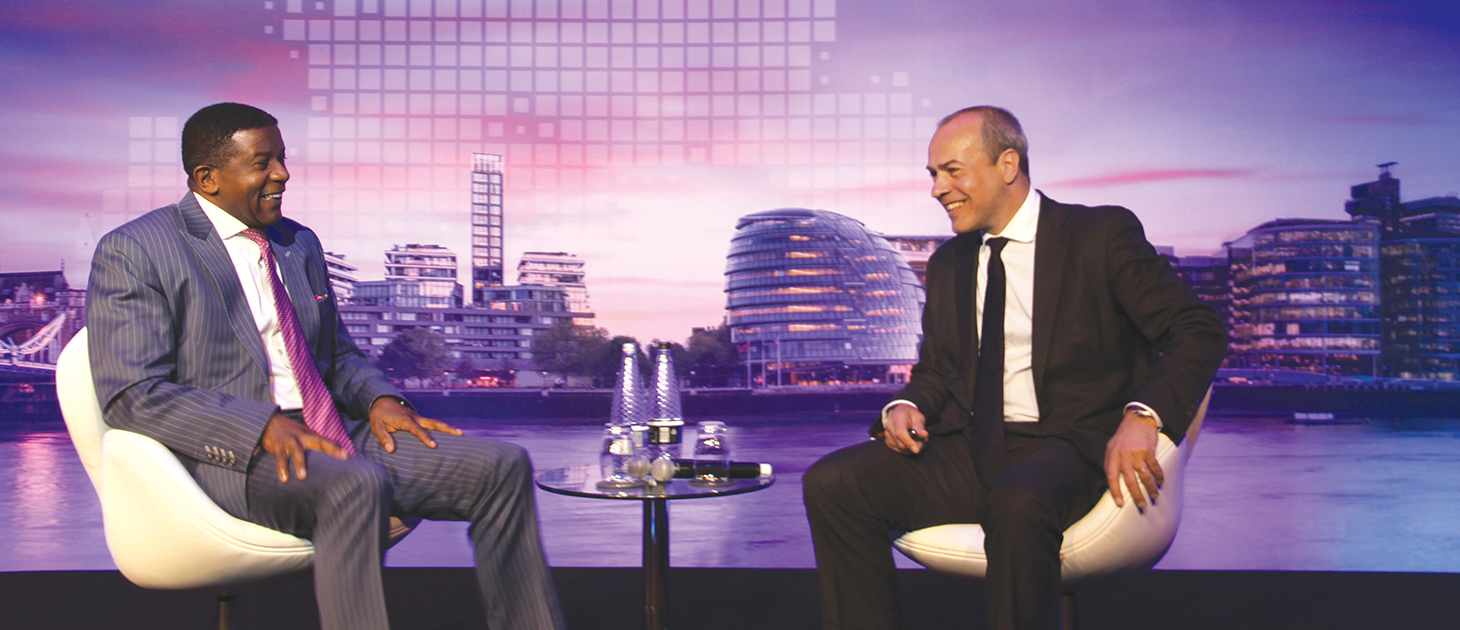EuroGrowth Yields Global Insight, Cross-Border Connections
Attendees at ACG's EuroGrowth conference learned that an economic slowdown in the United States and China is more likely to occur than a recession, and more.

Attendees at the Association for Corporate Growth’s EuroGrowth conference learned that an economic slowdown in the United States and China is more likely to occur than a recession, and the impact will be less severe than a decade ago—thanks in part to countries whose economies are still developing.
EuroGrowth, held June 11-12 at the Hilton London Bankside, opened with a discussion with Trevor Williams, former chief economist at Lloyds Bank, about the myriad factors impacting the global economy. Stewart Licudi, managing director of financial sponsors at William Blair, joined Williams for an engaging dialogue about how the global economy is impacted by the foreign trade policies of the U.S. and China, and how political disagreement on trade threatens to disrupt global supply chains. Williams said consumers remain generally positive, but corporate debt is growing, and the technologies that connect national economies require greater cooperation and open markets.
“With slowing growth comes slower inflation and lower interest rates, which make the cost of capital less. It’s cheaper to buy and invest,” Williams said, adding that economic growth will undoubtedly slow. However, he noted that has yet to happen because the global economy is still experiencing a recovery—in large part because of regulations that stymied a greater economic collapse a decade ago.
According to PitchBook, European private equity deal value reached £414.9 billion in 2017, before dipping to £396.3 billion in 2018. When Licudi asked about the role private capital plays in the European economy, Williams noted how appropriate EuroGrowth’s tagline of “deals without borders” is, given how both small business and global companies rely on the middle market for their own growth. Moreover, fueling the economic growth of many developing countries are technology solutions, often backed by private capital, that have decreased wage inequality and will likely prevent another downturn like 2008.
Angela MacPhee, the 2018-2019 chair of the ACG Global Board of Directors and a partner with Baker Tilly, welcomed 150 attendees from 13 countries to the conference. Previous EuroGrowth participant feedback prompted additional networking time this year. In all, attendees pre-scheduled nearly 200 one-on-one meetings.
“EuroGrowth’s size is its best secret,” MacPhee said. “Its intimate nature affords us the opportunity to move beyond polite conversation and develop meaningful relationships that strengthen our professional network.”
“WITH SLOWING GROWTH COMES SLOWER INFLATION AND LOWER INTEREST RATES, WHICH MAKE THE COST OF CAPITAL LESS. IT’S CHEAPER TO BUY AND INVEST.”
Trevor Williams
Fmr. Chief Economist, Llyods Bank
Seven breakout sessions covered contemporary issues, including relationships with limited partners, managing employees during the postacquisition integration, and increased investment activity by family offices.
The most lively and physical of the breakouts was a session featuring a showdown between private equity and private debt. Boxing gloves and all, Jo Bennett-Coles, managing director at FGI Finance, readied for a faceoff with The Riverside Company’s Tommy Seddon. Three hypothetical case studies set the foundation for the duo’s arguments. While delegates were split in their support, there was universal appreciation for the debaters’ dramatic flair and acting chops.
Cultural Considerations
The importance of people proved to be a constant theme and was a major focus of Wednesday’s keynote addresses. Natasha Buckley, investment practices senior manager, private equity, at Principles for Responsible Investment, led a discussion titled “Evaluating Cultural Diversity and the Impact on Business.” The session featured panelists who shared candid stories about forgoing investments when the makeup of the senior leadership team lacked diversity.
Maria Blair, a partner at ghSMART, said an increasing number of investors are paying attention to cultural fit during the due diligence process. Blair told a story of a private equity firm that walked away from a deal in the 11th hour upon learning that the management team of the company to be acquired neither respected the CEO nor his decision to sell a stake in the company.
Josien Bakker, an investment manager at Robeco, and Freerk Smit, a financial portfolio manager at Karmijn Kapitaal, rounded out the panel. They agreed that diversity within their own firms equips them with different perspectives that create an environment for better decision-making.
The trajectory of a cross-border deal took center stage during the closing keynote, led by Benjamin Procter, a senior partner at the Watermill Group in Boston. Proctor walked the audience through Watermill’s acquisition of U.K.-based Cooper & Turner and how the deal nearly failed. Proctor candidly discussed the challenges in building a trustworthy relationship with the existing management team and the regulatory and legal issues found within a global supply chain. He joined MacPhee for a discussion about the deal, and he addressed how the topics of gender diversity and building teams with an array of experiences apply to Watermill.
At the end of the event, attendees walked away with new connections and expert insights. Said William Blair’s Licudi: “If you don’t leave here with a deal, you’ll at least leave with the knowledge to be more thoughtful and productive in your M&A work.”
This story originally appeared in the September/October print edition of Middle Market Growth magazine. Read the full issue in the archive.

Karen Craven is ACG Global’s vice president of communications.


